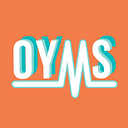Subjects and Strategies: Math
Preparing for that algebra test this week? Still not sure how to differentiate a logarithmic function? We’ve all been there — a victim to the struggles of math. No matter how much we hate it, math always seems to pop up everywhere we go. Math is used in pretty much every field of study — physics, biology, chemistry, economics, even social sciences! So instead of ignoring it, let’s look at how to properly study for it and maybe, learn to love it?
As a disclaimer to the rest of this blog, please know that although I will share many studying strategies with you on how to study math, no method is foolproof and sometimes studying how you study best no matter the subject, will be best for you and your academic success. So take these next strategies with a grain of salt and feel free to add them into your routine in whatever way you like to! Now, let us begin!
When studying math, there are many different ways to build your skills and create an effective study plan. The top study methods that I have found most helpful are playing teacher, and practice practice practice!
Playing teacher is one of my absolute favourite ways to study! I’ve effectively used this method to study for countless tests for a variety of subject areas — not just math! Playing teacher is exactly as it sounds — playing the expert on the subject and explaining it to others (students). For me, these “students” have usually consisted of my stuffed animals or just my plain wall. As weird as it sounds, this is a great study method to effectively test your own knowledge of understanding as well as solidify your understanding. Math is not all about numbers and letters — it’s also about understanding theorems and applications. Taking a math course goes beyond solving an equation, it also means applying your knowledge and understanding to more realistic, real-life mathematical problems (such as physics problems!). By explaining theorems and applicable methodologies out loud, you’re testing to see if you actually know your stuff, avoiding “assuming” you know the material. Once you understand the material, explaining it in your own words to your “students” further strengthens this understanding. Being able to do so usually indicates that you can apply this knowledge in different contexts, making it easier to understand those application/trick questions on that midterm — cause let’s be honest, sometimes reading the question takes even longer than answering it. This way, your mind is prepped for different scenarios under the same mathematical knowledge.
The last method is the most obvious one, but the most important — practice practice practice! Math is a subject that cannot be successfully achieved without sufficient practice, and then some! A lot of the times, mistakes people often make when practicing is not selecting the right kinds and amount of questions. For example, if studying 1 week ahead of your midterm/test, you should be aiming to dedicate around 1–1.5 hours each day to JUST practice questions. I like to leave the last 1–2 days before the test focusing on multiple practice tests, and continuing to redo them WITHOUT looking at my notes or other resources — treating it like a real test. It might be helpful to also time yourself. When practicing, you should be choosing from a wide range of kinds of questions — not just doing the easy ones. Majority of the time, tests will consist of mostly medium-level difficulty questions, with a few easy and hard ones. So, for each study day, you can start off by doing a couple easy questions as warm ups, then focusing on a bulk of medium-level questions, and ending it off with a few difficult ones that may take longer to solve.
Math can sometimes feel like the hardest course you could ever take, but once you’ve got the hang of it and found both an area of math that you love and a study method that works for you, you’ll love it! Take it from someone who used to struggle all her childhood with math, but then grew in love with algebra and calculus. Knowing math not only gets you through that next midterm, but also helps you gain a better understanding of the world. With that said, feel free to try other tips and study methods — maybe they’ll work for you! Or even change up these strategies that I’ve given to better fit your study plans. Remember that everyone learns differently and at a different pace, and what matters most is showing up knowing you tried your absolute best. Every mistake is an opportunity to learn.
About the Author:
Jenny Pham is a second-year McMaster Hons. Life Sciences student specializing in Sensory Motor Systems. She is currently working as a tutor, and is an amateur writer looking to combine her passions for medicine and creative writing. Like others around her, she’s a first-generation student working towards a career in medicine and education, looking to continue advocating for underprivileged communities as a scientist, through research, and education. You can connect with her on LinkedIn!
